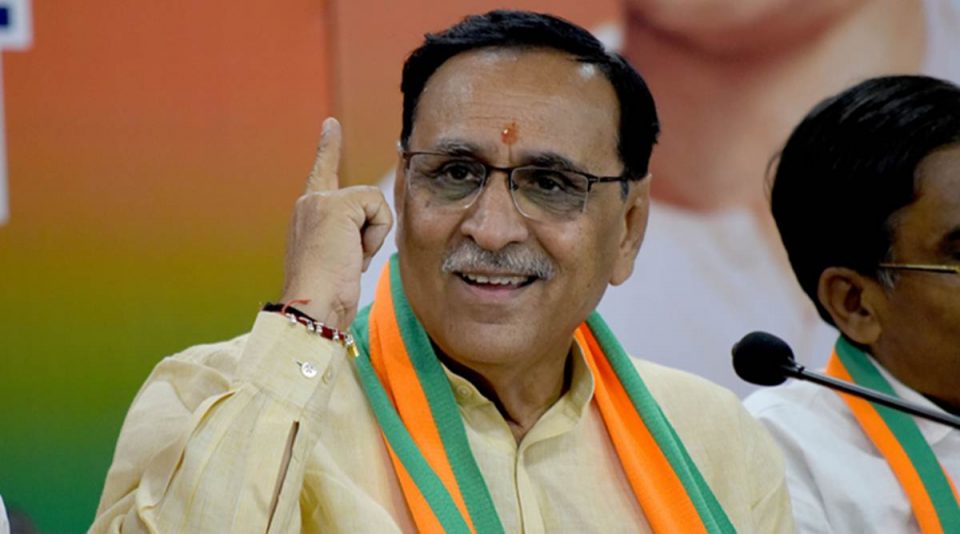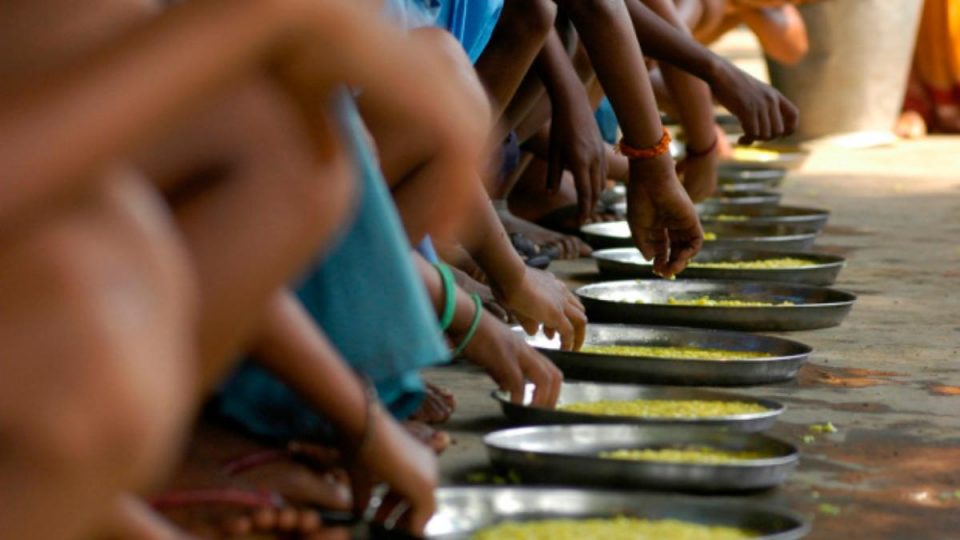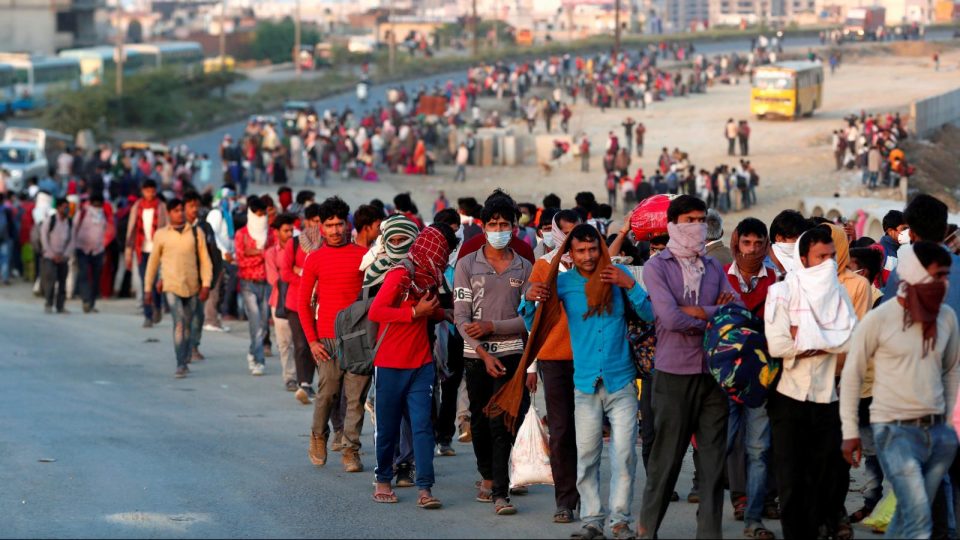
Covid lockdown exposes Gujarat model of compassion


As India completes a long period of lockdown because of Covid-19, The Federal revisits the biggest story of our times and tries to make sense of the surreal events that have unfolded around us since March. We look at how life has unfolded in a pandemic, what it has told us about ourselves, our country, society, religion and government, and what can we expect from a post-Covid world, if it exists. Today, we look at how the crisis has exposed India’s most famous model of governance.
Covid lockdown exposes Gujarat model of compassion
Uploaded 21 May, 2020

Almost every press release these days from Gujarat chief minister Vijay Rupani’s office swears by sensitivity and compassion for people. Photo: PTI
Gujarat’s mentor and its current government share a similarity—both love words of compassion, like to be seen as sensitive and sympathetic to people and their woes. But the similarity ends here.
The mentor has the knack of often getting away by merely preaching what he purports to practice. This is one art that the heirs of Narendra Modi back home in Gujarat haven’t perfected, or probably weren’t handed down.
Almost every press release these days from Gujarat chief minister Vijay Rupani’s office swears by sensitivity and compassion for people. “Koi bhukhyu na suvey enu dhyan rakhyu chhe sarkarey (the government ensures nobody sleeps on a hungry belly),” is pet Rupani refrain. But, sometimes slogans are just that.

On the ground, almost every migrant worker trying to go back home – breaching barricades and pelting stones in protest after being thwarted— will tell you he is hungry. That he has no money to buy food. That he wants to get out of Gujarat, touted as a model of development and growth.
Related News: COVID-19 victim’s body found at bus stop in Gujarat, CM orders probe
The state they had called home for years is alien territory today. As a Gujarati TV channel argued, the migrants whom Gujarat accepted, internalised and reared all these years are now pelting stones! Few wonder if the state — with all its avowed compassion, could not have taken care of those who built their real estate industry, who ran their powerlooms and diamond units, who stand as their security guards at thousands of housing colonies, who don’t create a riot for being paid less than the official minimum wages.
For years these silent millions are, the world should know, the poster boys of the investment hoardings Gujarat puts up for the world amid claims of zero labour unrest. Now, they are advertising a state that fails to care for the hand that fed its development.

The pandemic has shown that for all the hype around the leaders of Gujarat, when it comes to panic, their words have no meaning. When the migrants started walking or cycling towards their native states soon after the first phase of lockdown was announced in March, all calls of stay-where-you-are right from the Prime Minister to the chief minister were simply ignored. Instead, over the next few days, Gujarat witnessed ugly scenes of migrants blocking streets, pouring out on the roads in large numbers and creating a ruckus to demand food and a passage to home. This was predictable—since there was no work, no wages, their food stocks and savings were wiped out within days.
Also, what the mouth was preaching, the hand was defying. So, while the CM and officials at different levels kept on appealing the workers not to leave in a hurry, the police were packing them off in bus-loads and dropping them at the border of neighbouring states, Rajasthan, Madhya Pradesh and Maharashtra.
Related News: Gujarat: Locals hurl stones at cops in containment zone; 68 held
In the first rush of compassion, the government announced there won’t be any wage cuts, or lay-offs. But, a fortnight ago, when as many as 16 industries’ associations in Gujarat made a forceful representation before the CM they be allowed to cut salaries and go for some retrenchment measures, as well as that the workers who had been paid March and April salaries should not be permitted to leave the state, the government did a volte-face. Soon after came the decision that there would be a moratorium on the implementation of labour laws for 1,200 days as a key measure to kick-start the economy and boost investments in the State. The government calls this labour reforms.
And then, when the government started special trains for migrants, workers wishing to go home had to first register and buy railway tickets that cost a minimum of Rs 500 to a maximum of Rs 2,000. Taking advantage of the rush and desperation, several operators jumped into the fray to sell tickets and travel passes at a premium. This when the leaders were claiming the states and railways would share the burden.
The story of the compassionate and sensitive model of governance — or the lack of it — is captured by a survey of the status of the labour force in Gujarat and Maharashtra carried out between April 23 and May 1 by the Centre for Labour Research (CLRA), Habitat Forum (Inhaf), Mashal and Sociology Department of Savitribai Phule University, Pune.
Related News: Regulate fees of pvt hospitals treating COVID-19 patients: Gujarat HC
The survey revealed that 92 per cent workers, including migrants and locals, in Gujarat were not paid any wages during the lockdown, while this percentage was 59 in Maharashtra. The survey reported at least 61 per cent in Gujarat bemoaning that the attitude of their employers after the shutters were downed on offices and businesses had turned cold and arrogant, while this was so in the case of 33 per cent labourers in Maharashtra.
Notwithstanding the government’s promise that not a single worker would go hungry, as many as 35 per cent of the workers asserted they had received no help from the government and whatever they got in terms of food and rations was from the voluntary organisations.
As the mentor would have never said, hypocrisy, thy name is Gujarat.
End of


